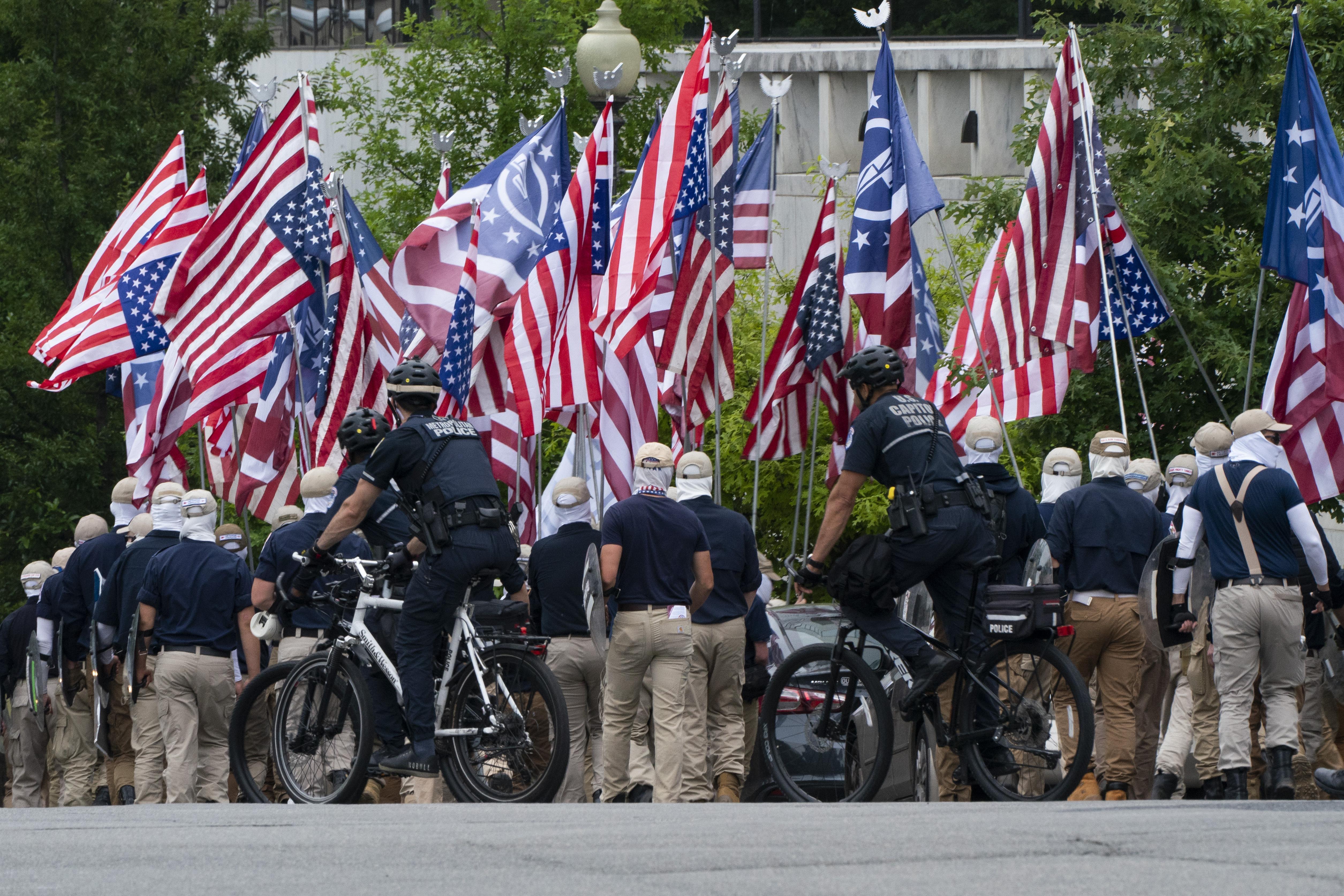In 2024, the SPLC found seven organizations that it defines as hate groups in Mississippi. That includes the American Family Association in Tupelo, an organization the SPLC considers to be anti-LGBTQ. It also includes the statewide Active Club, an organization the SPLC has identified as a white nationalist organization.
Although the number of hate groups rose by three in Mississippi since 2023, the SPLC’s report found that this is not the trend nationwide.
Margaret Huang is president and CEO of the Southern Poverty Law Center.
“The report documents a 5% decline in hate and anti-government extremism groups in the U.S. from 2023,” she said. “It's important to highlight that the decline does not serve as evidence of the diminishing appeal of these groups, but should be viewed as the successful mainstreaming of these ideologies as they drive decisions at the highest levels of power. As their priorities are now reflected in the agenda of those with power, there is less incentive to recruit or organize.”
Huang says she believes that the Trump administration has shown that formerly fringe beliefs have now become more acceptable.
“Many of the president's policy priorities, introduced in his first 100 days, take language directly from the playbook of hate groups documented in this report, now from the nation's highest offices,” she said. “Trump and his allies are enacting a hard right agenda to erase Black history, to push LGBTQ+ people into the shadows, to eliminate diversity, equity and inclusion initiatives that seek to ensure civil rights statutes are enforced and to cut off critical resources and due process protections for immigrants and other vulnerable communities.”
Rachel Carroll Rivas is the interim director of the Intelligence Project at the Southern Poverty Law Center.
“We documented these 1,371 hate and anti-government extremist groups, including a growing wave of white nationalism that is motivated by theocratic beliefs and this false claim of Christian persecution and white genocide,” she said. “The movement sought to dominate our social, our cultural and our political life in the United States, trying to craft a country in this image.”
Rivas says in 2024, these groups intensified their efforts to influence the political system by using state legislatures, school boards and local political systems as “battlegrounds” in order to ban books and roll back diversity, equity and inclusion initiatives. She says hate groups have often been popular in rural environments because these communities are often under-resourced.
“You end up with a vacuum,” she said. “And in that vacuum, particularly anti-government militia organizations will seek to fill it. We saw that over this last year, and even over the last few months, in cases of natural disasters. It's a moment in which anti-immigrant militia movements will often try to insert themselves and claim authority and power through doing simple acts for their community of support, and will then from that moment push further that they really can fill that gap and push their ideology at the same time.”
SPLC’s president, Huang, says recent efforts to shutter DEI programs are not examples of progress towards racial equality.
“The truth is that the attacks on diversity, equity and inclusion are not attacks on, say, training programs or opportunities on university campuses or in schools to make sure that all students feel welcome,” she said. “These are actually attacks on civil rights protections established by law.”
The SPLC report comes at a time when the U.S. Department of Justice has frozen or stepped away from many civil rights investigations.
Gerald Griggs is the president of the Georgia NAACP. He says he’s concerned with how extremist groups may impact marginalized communities.
“As a southern state, we remember what happened the last time the government took its eye off homegrown white nationalist terrorists,” he said. “That would be the 1930s, 40s and 50s, the rise of Jim Crow and the rise of of lynchings and hatred.”
Griggs says he hopes that organizations like the SPLC will use local governments to help combat the rise of extremist groups.
“But we recognize that we probably no longer have a partner in the federal government that's going to do this type of work in a focused and methodical pattern,” he said.
The SPLC report also tracked the rise of “male supremacist” influencers.




